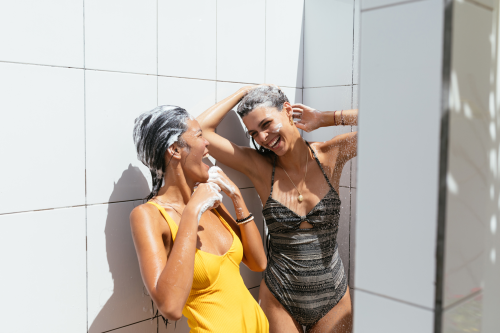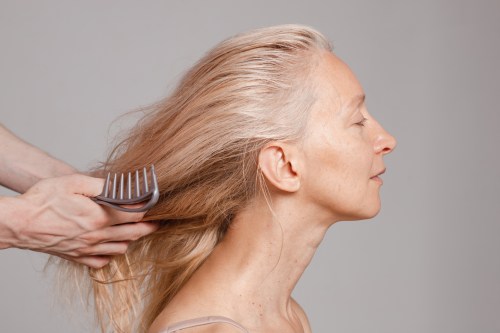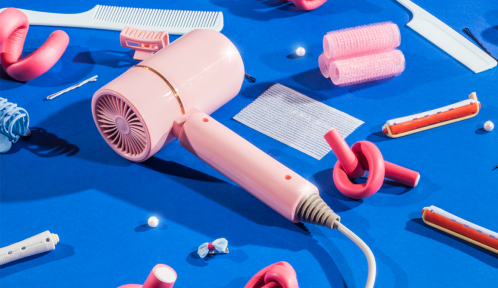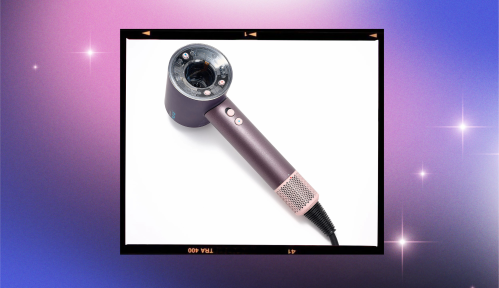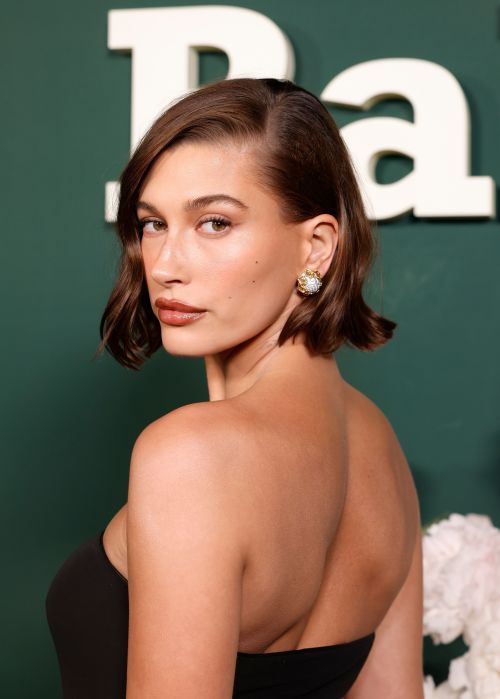What I learned about myself from going from brunette to blond (and back)
The psychological effects of hair color are more long-lasting than simply dyeing your hair and moving on. Here's what to know.
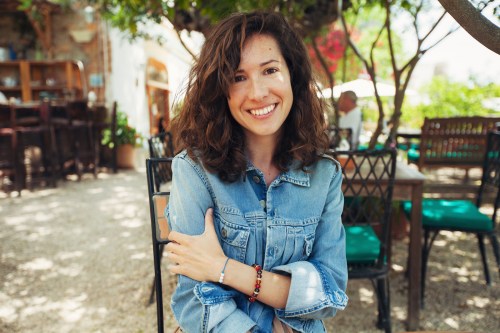
In midsummer of last year, I did something unprecedented to that point in my life: I—gasp—highlighted my hair. My curls are naturally a Rory Gilmore-shade of brown that I’ve never loved nor hated. But when I got the opportunity through work to go lighter under the careful stewardship of Biolage celebrity stylist Nick Stenson, it felt like one of those opportunities to change something about myself without really changing anything at all, because the psychological effects of hair color are just as important as the physical ones.
One three-hour appointment later, I walked out with honey-blond highlights that made me want to tie-dye, listen to Joni Mitchell, and learn how to skateboard. In balmy, sticky June, the vibe fit. One appointment later, I asked for even more highlights and leaned fully into the blond living. Which, despite my kick-flip ambitions, actually looked a lot like my standard, brunette life.
As the hot, hot months wore on and I learned the wonders of purple shampoo and brassy tone correctors, I started to notice that people said the same things about my newly-blond head again and again:
“Oh! You went lighter for the summer!’
“Blond for the summer—good choice!”
“Blond! And just in time for summer.”
“Since we associate summer with fun and vacations, we might prefer more red or blond,—’fun’ colors,” explains clinical psychologist Aimee Daramus, PsyD. “Dark hair might reflect the way that winter can feel a little more serious and you might spend more time on school or work than you would in the summer.” In other words, there’s no doubt that seasonal hair-coloring is a thing. But soon, I started to realize that it might not be my thing.
I kept my blond hair through fall, but soon I was craving something darker. Not darker like my original shade of brown, but something bordering on black that could make me more Wednesday Addams, so I found myself in Stetson’s chair, yet again, asking to reverse my blond highlights. One of the great freedoms in beauty is that we get to assign meaning to our aesthetic choices. (If we want to, that is.) A pop of blue eyeshadow can mean “I’m feeling stoked today,” bold eyebrows can mean bolder ambition, and—in my case—black hair can mean: “I feel a lot of feelings at this time in my life and I need my hair to mimic that Big Mood.”
“[Dying your hair] can be a part of branding, to present a certain image,” says Dr. Daramus. “Sometimes, though, it’s an identity shift. It can be as simple as ‘winter me’ to ‘summer me’, or as complex as going from being a student to a professional or from being in a relationship to being single. It can be really fun to think about what you’re saying about yourself when you change your color.” That’s why I’ve decided that I’m done changing my hair with the seasons. It’s time I decided how my beauty routine will do the work to make me fully myself as I change and evolve.
Will I always feel the most like me with hair that blends into the night? Probably not. For now, though, it fits my beauty season.
How to deal with hair loss, according to a derm:
If your hair is super oily, same. Here’s how to not wash it a million times a week. Plus, the best bangs for every face shape.
Sign Up for Our Daily Newsletter
Get all the latest in wellness, trends, food, fitness, beauty, and more delivered right to your inbox.
Got it, you've been added to our email list.
